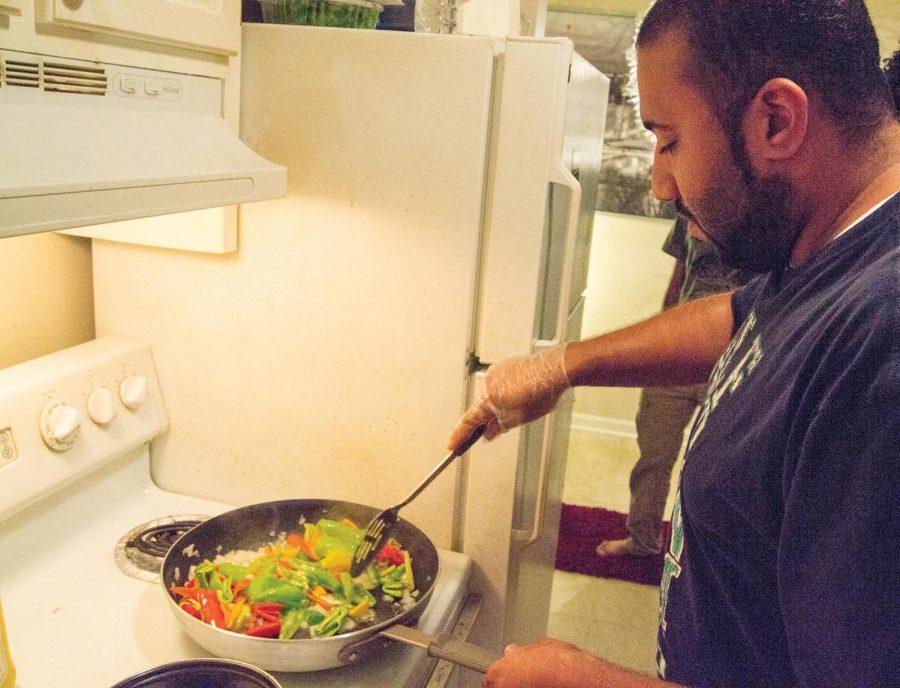International students adapt to American food, resources
September 12, 2013
I arrive at the home of two of UNA’s Saudi Arabian students to the sound of sizzling and the fragrance of various seasonings. The night’s main course is kabsa, and Ali Alderees and Omar Bursais smile and laugh as they prepare the meal.
The kitchen is filled with steam from the basmati rice that is cooking, a light smoke from the chicken and potatoes and peppers as they sauté, and a hearty aroma from the onions, coriander, paprika and curry. A bowl of fresh dates sits on the counter next to a can of Pringles and a fun size bag of Snickers.
Ali said some of the ingredients they prefer to cook with have not always been easy to come by in the U.S.
“We used to have the basmati rice sent to us from home because we could not find it here,” Ali said. “But now we are able to find it at Sam’s Club.”
The basmati rice is a longer and thinner type of rice, and it is often used in cooking in their home region.
To find some of the other spices and ingredients they need, they may have to travel to Nashville, Tenn. or Huntsville, Ala. to find them, Ali said.
Other friends arrive gradually. At first I assume it must be because they have smelled the food cooking as it wafts out the front door, drawing them in from other apartments and nearby streets. But Ali says they all take turns cooking and eating at each other’s homes.
“We usually cook once a week and invite our friends over,” Ali said. “And then when they cook, we go eat at their home.”
Later on in the evening, Ali pointed out that cooking and eating together is as important culturally and socially, and it is not about just having a meal.
The conversation turns to local restaurants and culture as Omar and Ali begin to bring the culinary concoction to a crescendo.
Simple things that local people would not think about are different for him and his friends, Ali says.
“The chicken in the salads that they serve in the GUC is cold chicken, and I don’t normally eat it cold,” Ali says. “So, we might get the ladies to heat it up for us or something.”
As far as local restaurants and food, Ali immediately chimes in.
“Taco Bell,” Ali says. “We like Taco Bell. I also like Montague’s.”
The meal is ready, and the two chefs begin to load everything onto two large, silver platters. They ask if I am comfortable with eating in their custom and I say “yes” with a slight hesitancy. I am a bit nervous I will offend them while attempting to eat with my hands, but they assure me it is no big deal.
Some of the people in Saudi Arabia sometimes use silverware, Ali explained.
“We normally eat with our hands, but using forks and knives here in the United States hasn’t really been a problem,” Ali says.
After the meal is finished, Omar prepares a pot of their native tea. A neighbor is summoned to bring over a sampling of the native coffee as well. The tea is warm and sweet, and though I am warned the coffee will keep me up through the night, it too has a sweet aftertaste.
After talking to Ali and all of his friends, it seems as though they are comfortable at UNA and living in Alabama. It seems as though they have embraced as much of the local culture, as they have shared of their own.


